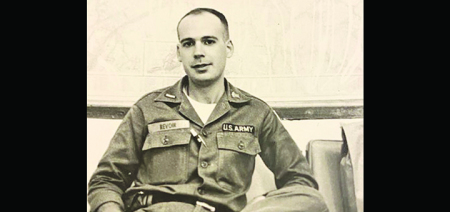Give Workers A Raise
Published:
November 14th, 2014
By:
Steven and Cokie Roberts
American workers need a raise, and there's one simple way to boost incomes at the lower end of the pay scale: Increase the federal minimum wage, which has been stuck at $7.25 an hour since 2009.
It's certainly correct that a growing economy is by far the best way to enhance incomes and living standards. But that precept ignores a troubling reality: Too many hardworking families are simply not benefitting from a recovery that's now well into its fifth year.
Unemployment has fallen to 5.8 percent; the economy has added at least 200,000 jobs every month for nine straight months; the stock market setting records barely makes the news.
But real wages remain flat. People feel gloomy, not giddy. Trickle-down economics is swamping as many boats as it's elevating.
Economist Stu Hoffman of PNC Financial tells The Washington Post that wage growth "is one of the most important missing links" in the current recovery. William Galston of the Brookings Institution makes a similar point to the Associated Press: "People aren't looking at the statistical aggregates. They care about their standard of living, and most Americans think their standard of living has declined."
This explains why so many voters were so pessimistic on Election Day. Seventy-eight percent said they were worried about the economy. Only 22 percent felt that life would be better for the next generation.
Raising the minimum wage is no magic answer for all that misery, but it clearly would help. According to the Pew Research Center, about 3.3 million hourly workers earn the current federal minimum wage, but another 20.6 million -- nearly one out of three hourly workers -- make less than $10.10 an hour, the standard proposed by President Obama and congressional Democrats.
So 24 million workers would potentially benefit from the change, but they'd still be struggling. A full-time worker making $10.10 an hour earns about $21,000 a year. Let the legislators who oppose the change try living on that.
Of that group, about 54 percent are women, 76 percent are white and 40 percent are under 30. One in 5 lacks a high school diploma; a clear majority never attended college.
Yes, a higher minimum wage could negatively impact some industries, like food service and hospitality. But the overall benefit would be sizeable, for the economy in general as well as for individuals. Consumers are the biggest force driving growth, and families would spend their heftier paychecks immediately -- on dinners and diapers, light bills and blue jeans.
Moreover, raising the minimum wage is highly popular. Earlier this year, Pew found that 73 percent of all Americans favored the idea. Half said they would be more likely to vote for a candidate who supports an increase, while only 19 percent said they'd be less likely to back such a candidate.
This preference was clearly demonstrated on Election Day when voters in four conservative states -- Alaska, Arkansas, Nebraska and South Dakota -- strongly endorsed measures to raise state wage levels. Republicans, who have generally opposed such proposals, reversed course and jumped on board.
In Arkansas, to take one example, two prominent GOP candidates -- Asa Hutchinson, who was running for governor, and Tom Cotton, the Senate nominee -- saw the light in September and endorsed a ballot measure raising the state standard to $8.50 by 2017. Both won, succeeding Democrats, with the help of voters like Kathleen Smith, a retiree from Cabot, Arkansas.
Smith, who voted a straight Republican ticket but supported the wage increase, explained to The New York Times: "What are those single moms and poor kids supposed to live off of? It's about time we give those kids a leg up."
Some economists are now predicting a small uptick in real wages as the labor market tightens, but the underlying causes of stagnation underscore the need for outside action. Many jobs have been outsourced overseas or made obsolete by technology. Fewer than 1 in 5 voters reports that a member of their household belongs to a union.
"Workers feel like they have absolutely no bargaining power," economist Robert Mellman of JPMorgan Chase told the Wall Street Journal.
This year, Republicans benefitted heavily from the mood of economic anxiety because voters blamed the president's party for their problems. But now that Republicans will claim a bigger share of power in January, they risk shouldering a bigger share of blame for stagnant wages.
The smartest thing they could do -- economically and politically -- would be to join the Democrats and back a boost in the minimum wage.
Comments





(1).jpg)

